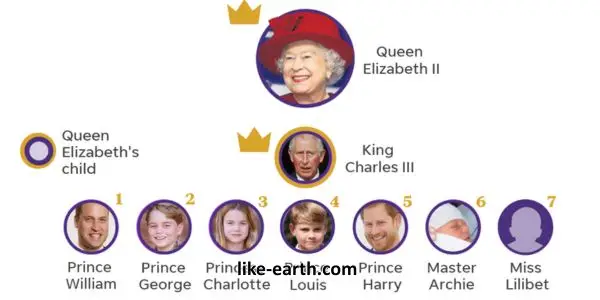Hereditary Royal Titles and How They Are Passed Down

Understanding hereditary royal titles and how they are passed offers insight into the traditions that have shaped monarchies across the globe. This exploration uncovers the mechanisms, meanings, and significance of royal titles passed through generations.
What Are Hereditary Royal Titles?
Hereditary royal titles are honorific designations passed from one generation to the next, often within royal or noble families. These titles reflect rank, power, and status within the monarchy. Common titles include King, Queen, Prince, Princess, Duke, Duchess, Earl, and Baron.
The Structure of Royal Hierarchy
The royal hierarchy begins with the reigning monarch and extends downward. Titles like King or Queen rest at the top. Below them, you’ll find Princes and Princesses—usually their children—followed by Dukes, Marquesses, Earls, Viscounts, and Barons. This hierarchy is part of the peerage system that defines British nobility.
Succession and Inheritance Rules
Succession is typically governed by laws or traditions, such as primogeniture, where the firstborn inherits titles and assets. In the UK, the Succession to the Crown Act 2013 made gender-neutral inheritance possible for the first time. This ensures the eldest child inherits the throne, regardless of gender.
Peerage System in the UK
The British peerage system categorizes nobility into five main ranks: Duke, Marquess, Earl, Viscount, and Baron. Each rank comes with its own significance and often entails ceremonial duties. These titles can be hereditary or life peerages (granted for the holder’s lifetime only).
How Dukedoms Are Passed Down
A dukedom is one of the highest hereditary titles below the monarch. It is traditionally passed to the eldest son. In some cases, if there are no male heirs, the title may become extinct or fall into abeyance. The Duchy of Cornwall, for instance, is traditionally held by the heir to the throne.
Titles Bestowed by the Monarch
While many titles are hereditary, monarchs can also bestow titles. This is often done to honor individuals or during royal weddings. For example, Prince William became the Duke of Cambridge upon his marriage to Catherine Middleton, now the Duchess of Cambridge.
Modern Interpretations of Titles
In today’s world, titles are largely symbolic. They often reflect public service, tradition, and historical continuity. Although they no longer carry legislative power, hereditary titles remain central to the cultural and ceremonial life of countries like the UK.
Controversies Around Hereditary Titles
Critics argue that hereditary titles perpetuate inequality and privilege based on birth. Others defend them as cultural heritage and historical legacy. The debate continues, especially in democratic societies where meritocracy is a core value.
Royal Titles Around the World
Not all monarchies follow the same system. In Japan, for example, the Emperor’s title is hereditary but follows different traditions. In the Middle East, royal titles often include Sultan, Emir, or Sheikh, each with its own lineage and protocol.
The Role of Women in Royal Succession
Historically, women were often excluded from succession. However, modern laws are evolving. The UK’s 2013 succession reform marked a pivotal shift toward gender equality in royal inheritance, opening the door for female heirs to hold and pass titles.
Popular Royal Families and Their Titles
Famous royal families, like the British, Spanish, and Swedish monarchies, maintain elaborate systems of titles. Each family follows its own rules for passing titles, often guided by tradition and national law.
Conclusion: A Tradition That Evolves
Hereditary royal titles are steeped in tradition but not immune to change. They offer a fascinating lens into a country’s past and cultural identity. While the debate continues, these titles continue to intrigue and inspire people around the globe.
For more explorations into culture, society, and the world’s most fascinating institutions, visit Like Earth.
Stay informed with updates on royal affairs by subscribing to our WhatsApp Channel.



